Children should always be able to rely on their parents for emotional and physical support, rather than being the ones providing it. However, sometimes it happens that kids are burdened with parental responsibilities without a way to refuse them.
Fortunately, this teenager was able to firmly stand his ground when his mom demanded he start making healthier lunches for his siblings. She wasn’t happy about it and even called him a ‘selfish brat,’ but this didn’t waver his determination.
Scroll down to find the full story and conversation with a parent partner and certified life coach for teens and young adults, Jennifer Brown, who kindly agreed to share her insights on parents giving parental responsibilities to children.
Due to various reasons, parental responsibilities sometimes fall on children’s shoulders
Image credits: Garakta-Studio / envato (not the actual photo)
This mom also tried to burden her teen with taking care of his sibling’s lunches, but he firmly refused
Image credits: valeriygoncharukphoto / envato (not the actual photo)
Image credits: FromFripped
It’s acceptable to assign parental responsibilities to children, but it has to be done with boundaries
Parent partner and certified life coach for teens and young adults, Jennifer Brown tells Bored Panda that it’s acceptable for parents to assign parental responsibilities to their children, like helping to take care of siblings. However, it has to be done with boundaries in mind.
“Many parents I work with are exhausted, juggling more than they ever expected. In moments of overwhelm, asking an older child to step in and help can feel like the next logical step in keeping the family afloat. And in some ways, it can be a positive experience. When it’s age-appropriate and approached with clear communication, older siblings can grow in empathy, responsibility, and confidence. It can even strengthen sibling bonds,” she explains.
But as mentioned before, it has to be done with intention. “Without crossing the line into long-term emotional or logistical dependency on the child,” says Brown. “The key factor is that your older child does not become a substitute for a caregiver or spouse.”
If that happens, it can have long-lasting consequences for the child, both mental and physical. This can lead to parentification trauma, which can cause feelings of anxiety, depression, and low self-esteem, as a kid may feel responsible to maintain a parent’s well-being without being able to meet their own needs. They might also struggle with boundary setting, have a strong need to please others, be overly responsible, and feel guilty when they don’t meet others’ expectations—all of which can pose challenges when forming healthy relationships in adulthood.
Taking on adult responsibilities might also make them miss out on important developmental milestones, like playing with friends or pursuing hobbies. The constant need to be responsible and please others might make them struggle with chronic stress and anxiety, which can increase the risk of health problems like heart disease and autoimmune disorders.
To help children avoid such harmful consequences, parents should be aware of the line between healthy family contribution and harmful parentification.
“The line is crossed when helping turns into chronic responsibility—and when the child’s own needs consistently come second,” says Brown. “If they’re missing out on social development, educational opportunities, or emotional care because they’re wrapped up in managing the family’s needs, that’s a red flag. Healthy contribution looks like pitching in. Harmful parentification feels like pressure, guilt, or obligation. Kids can help—but they shouldn’t carry the weight of keeping the household running.”
“Practice saying, ‘This feels like too much for me right now’”
If children or teenagers find themselves in a situation where they feel overwhelmed with the responsibilities parents are assigning them, Brown encourages them to try a few simple strategies:
- Practice saying, “This feels like too much for me right now.”
- Write a letter or journal if talking feels intimidating.
- Talk to a trusted teacher, coach, or counselor if they feel stuck.
In order to speak up, children need a safe way to do that, which starts with the adults creating an emotionally supportive environment, notes Brown. “As parents, we often forget that our teens may not know how to advocate for themselves yet. They need modeling, encouragement, and a soft landing when they do speak up.”
What can help parents to notice their children might be taking on too much are the following signs, as suggested by Brown.
- They’re anxious, irritable, or emotionally withdrawn.
- They act like “the little adult” in the home.
- They seem guilty for relaxing or having fun.
- They struggle in school or pull away from friendships.
To avoid overburdening their children with responsibilities, parents should regularly check in with their child, says Brown. “Not just on what they’re doing, but on how they’re feeling. Acknowledge their help with gratitude, not guilt. And most importantly, remind them often, “Your job is to be a kid,” Brown advises.
Most commenters believed the mom to be wrong in this situation
While others thought the teenager should help his mom out
Thanks! Check out the results:



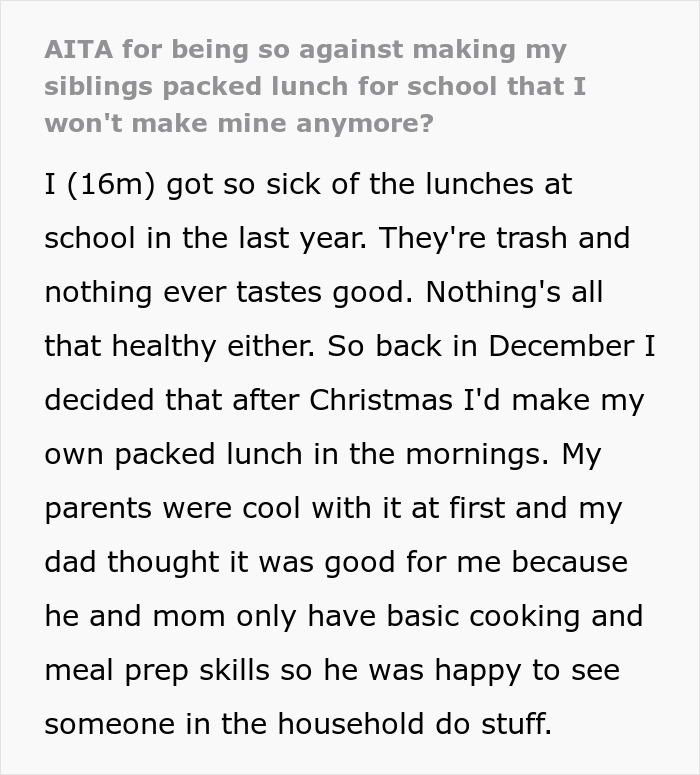
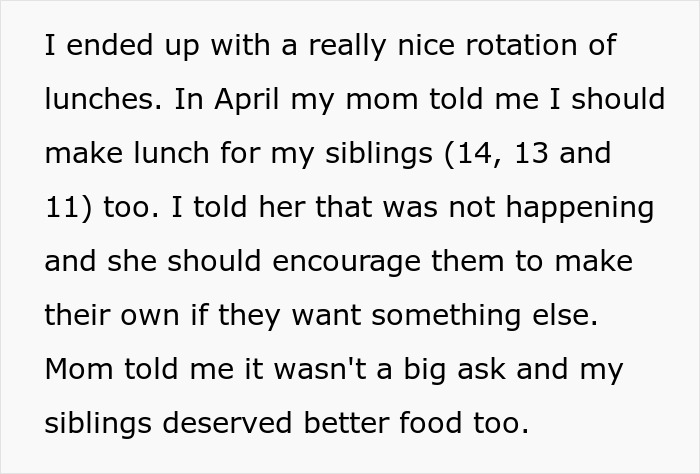
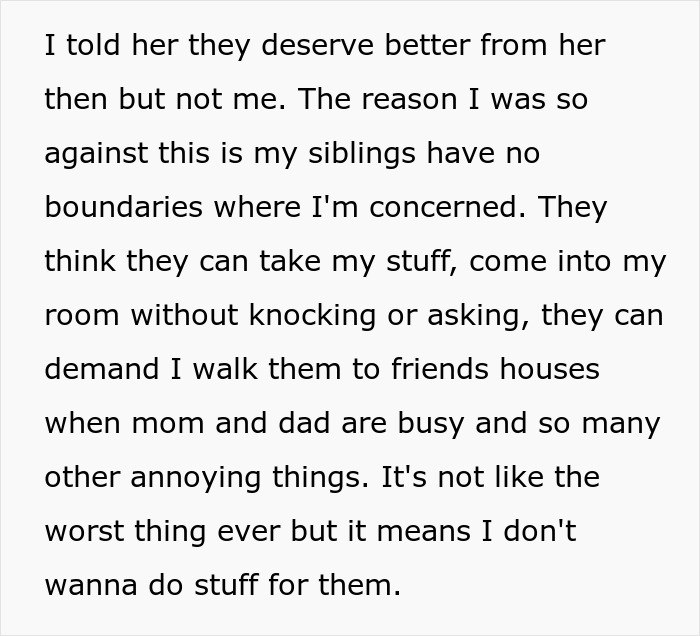
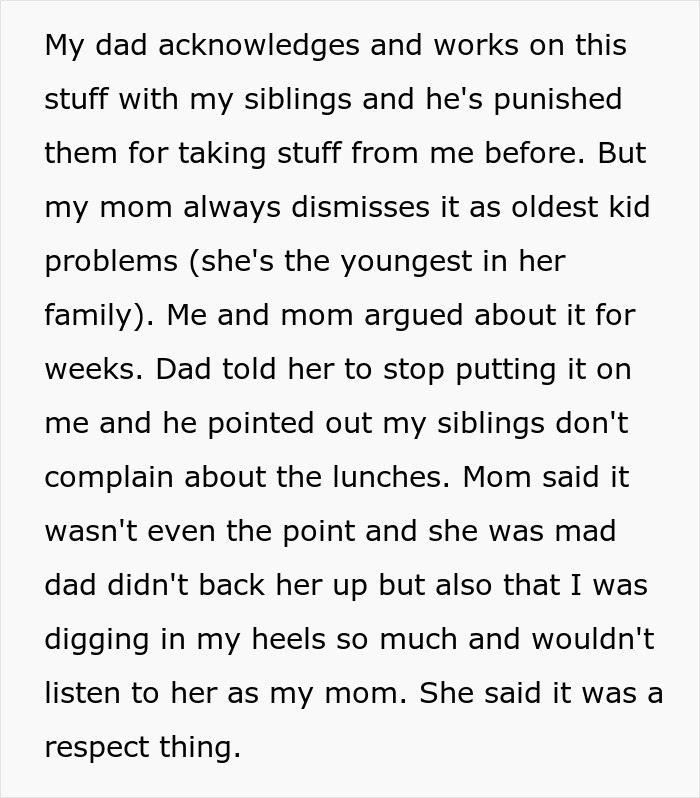

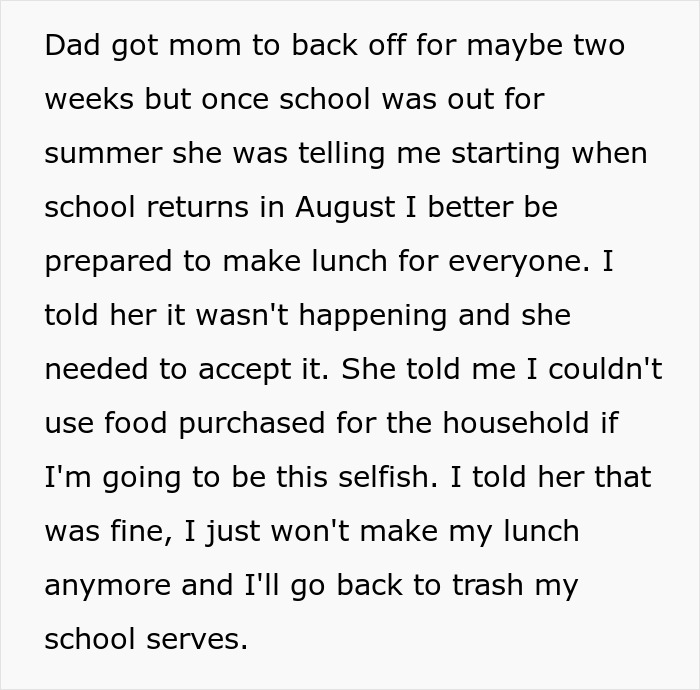
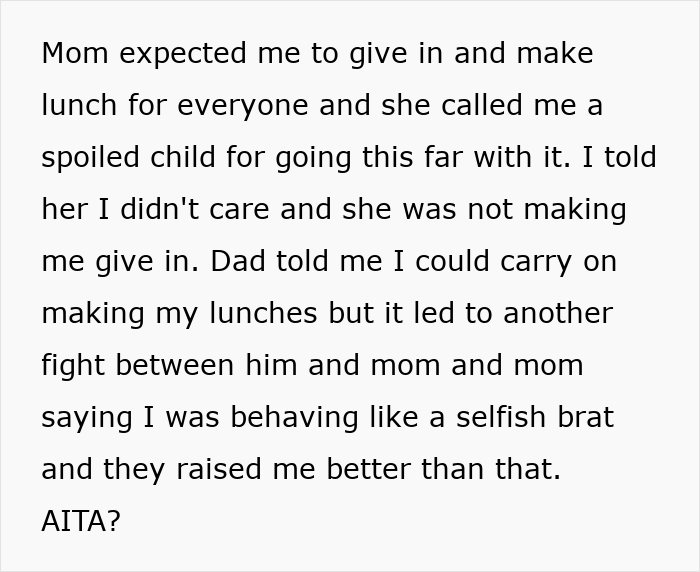


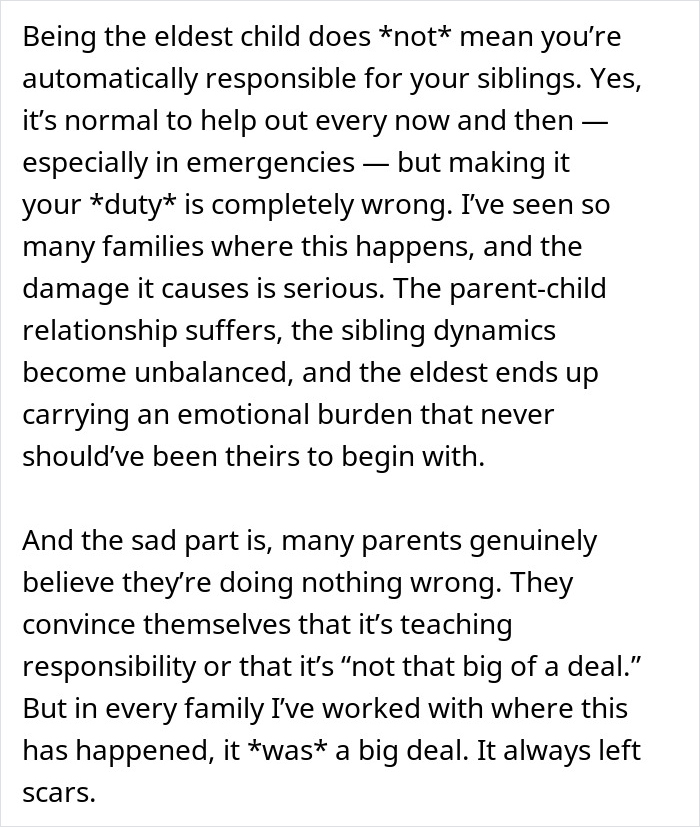


0 Comments